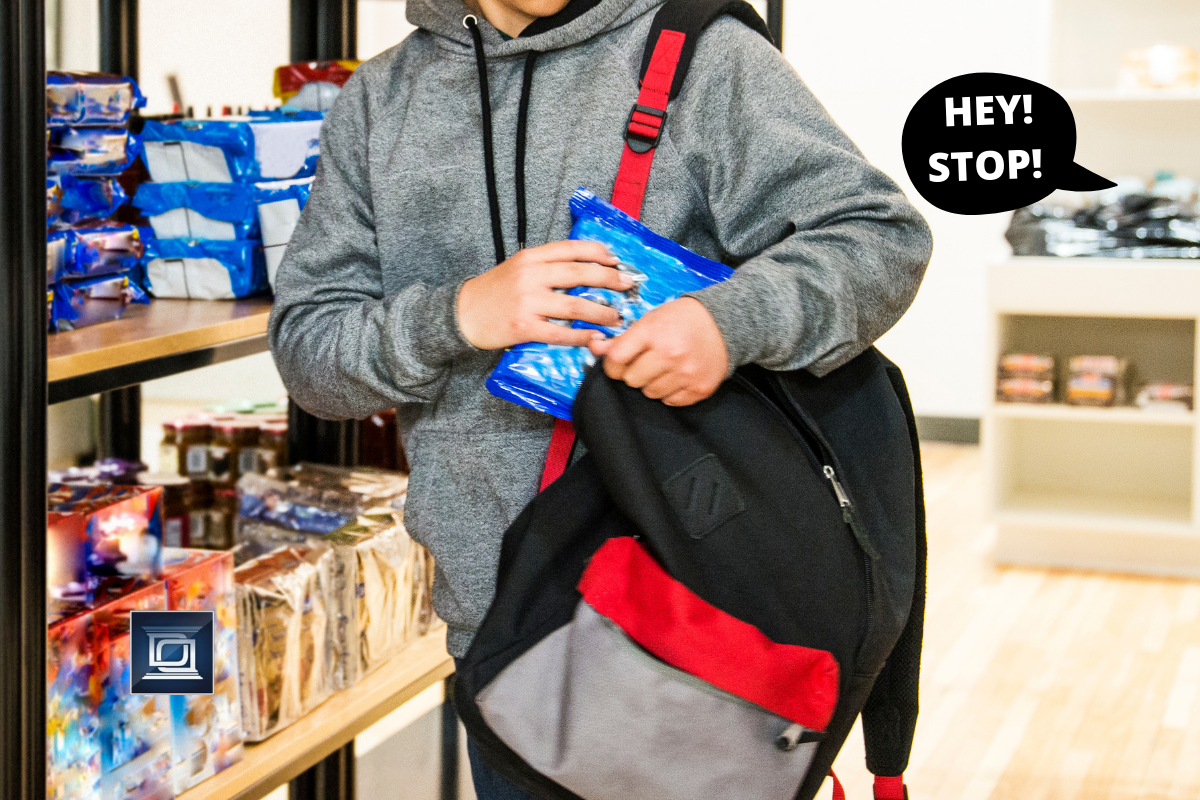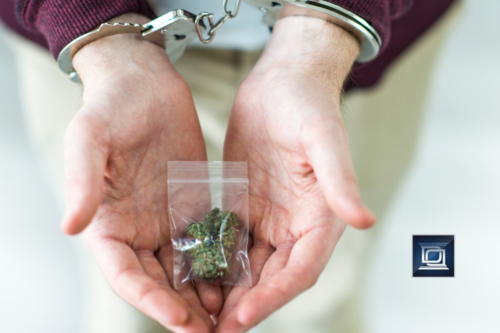A shoplifting charge is no joke in British Columbia – even if it’s your first time. You may have heard somewhere that stores don’t press charges against shoplifters, and while some stores have policies like this, many, if not most, do not.
If you shoplift, an employee or store security officer may stop you and call the police. The police officer who responds to this call may even arrest you right then and there on a shoplifting charge.
The actual charge you receive depends on the value of what you stole. Let’s take a deeper look at this.

Shoplifting Laws in BC
Shoplifting is a form of theft under the Criminal Code.
If you stole an item or items worth $5,000 or less, your charge is “theft under $5,000.” If you stole more than $5,000 worth of items, your charge is – wait for it – “theft over $5,000.”
We break down the differences between these two charges a little further in our other post, How Bad is a Theft Charge in BC?
After receiving your charge, you will need to respond to it by a date which will be determined by the BC justice system. Responding means you will need to decide whether to plead guilty or not guilty.
If you plead not guilty, a court date will be set for your trial.
If you plead guilty, you are accepting responsibility for the crime, and you will be sentenced or punished accordingly, unless alternate measures are taken, such as using diversion.
Using Diversion to Avoid a Criminal Record for a Shoplifting Charge
You may be able to avoid a criminal record for your shoplifting charge if this is your first offence, and if the value of the item (or items) you stole is small. The method used to do so is called diversion.
You may be able to avoid a criminal record through diversion if:
- you have no criminal history,
- you accept responsibility for the crime, and
- you are remorseful for what you’ve done.
If your case is diverted, the court won’t sentence you. Instead, you will have to report to a probation office and follow a program designed specifically for you.
Your probationary program may include a letter of apology and community service. Once you complete the diversion program, the criminal charge is “stayed.” This means that the charge against you will be dropped and you won’t have a criminal record.

What Happens When You Plead Not Guilty
If you plead not guilty to the shoplifting charge, the court will set a date for your trial.
At your trial, the Crown counsel will attempt to prove that you are guilty of the offence. They must prove that you are guilty beyond a reasonable doubt in order for you to be convicted.
The prosecutor must also prove when and where the shoplifting took place and that you are indeed the person who committed the offence.
To prove the charge, the prosecutor will need to have witnesses. These witnesses are commonly store security officers or the police officer who arrested you. These witnesses must testify under oath in court that they saw you commit the crime and tell the court (testify) about what they saw.
You and your lawyer will also be given the opportunity to question each witness. This is called cross-examining the witness.
After the prosecutor finishes, you have the opportunity to tell the court what happened. To do this, you might testify (give evidence) yourself. You don’t have to, but it may help you make your case. When you finish giving evidence, the prosecutor can question (cross-examine) you.
If you have any witnesses who saw what happened and who can support your story, you can call them to testify. Your lawyers will ask these witnesses questions that will allow them to divulge what they know. When they are finished providing evidence, the prosecutor can cross-examine them.
You and the prosecutor then summarize your positions by making submissions to the court.
Punishment for a Shoplifting Charge
If a judge convicts you, the penalties for shoplifting can include one or more of the following things:
- A discharge. The judge finds you guilty, but then discharges you instead of convicting you. Your discharge can be absolute (you won’t get a criminal record) or conditional (you won’t get a criminal record if you meet conditions the judge sets).
- A suspended sentence. The judge convicts you but suspends sentencing you, and instead releases you on conditions set out in a probation order.
- A conditional sentence. The judge gives you a jail term, but allows you to serve it in the community as long as you follow certain conditions.
- A fine. The judge sets an amount of money you must pay to the court.
- A restitution order. The judge orders you to pay for the item you stole.
- A jail term. The maximum jail term for theft under $5,000 is two years.
For a first shoplifting conviction, a judge will usually put you on a form of probation (a conditional discharge or a suspended sentence) that forbids you from going back to the same store for a year. The judge may also fine you several hundred dollars.
Sometimes, you must also pay a victim surcharge. A surcharge is generally 30% of your fine, unless you did not receive a fine, in which case you will be charged $100 for a summary offence (minor offence).
If you cannot pay the fine, you may be given a small (generally one day) sentence in jail, unless another deal can be struck.
The best way to avoid a criminal record for shoplifting is to hire a criminal defence lawyer. Your lawyer can help you choose the best path forward, and often defendants who hire their own lawyer receive a better outcome than if they didn’t retain defence.
The criminal defence lawyers at Dhanu Dhaliwal Law Group have extensive experience defending against theft and shoplifting charges.
In fact, DDLaw’s co-founder Rob Dhanu is a former Crown Prosecutor, with years of experience on the other side of the law.
Our team can get you the best possible outcome and help you put your mistakes behind you and move on with your life.
Contact Dhanu Dhaliwal today by calling one of our offices, or by filling out our contact form.





